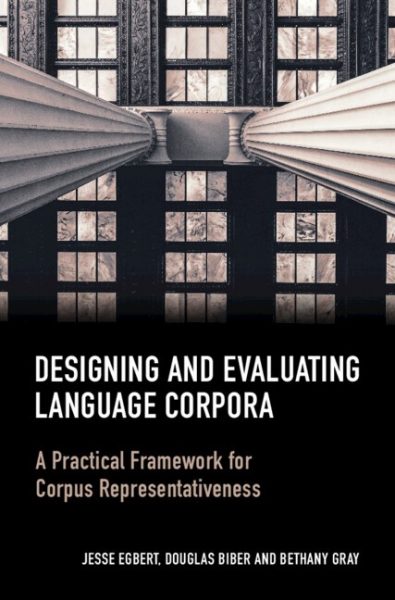 | Designing and Evaluating Language Corpora: A Practical Framework for Corpus Representativeness Jesse Egbert, Douglas Biber, and Bethany Gray Designing and Evaluating Language Corpora provides a practical framework that corpus linguists can use to design principled corpora to address their research questions about language, as well as select and evaluate existing corpora relative to a particular research goal. The book integrates both theoretical and empirical considerations about corpus linguistics, corpus representativeness, and sampling to arrive at a pragmatic framework that can guide linguists in their work with corpora, and provides a number of case studies (both conceptual and empirical) to demonstrate the framework in action. |
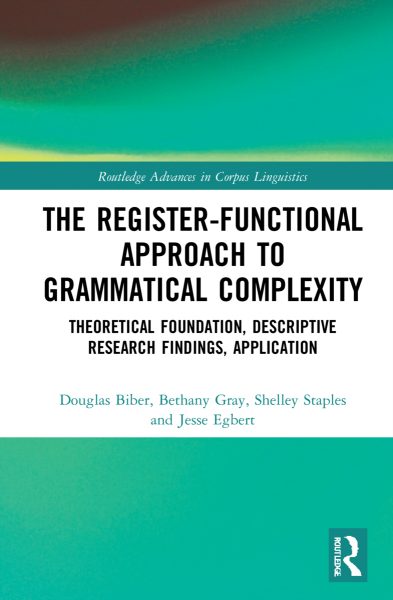 | The Register-Functional Approach to Grammatical Complexity: Theoretical Foundation, Descriptive Research Findings, Application Douglas Biber, Bethany Gray, Shelley Staples, and Jesse Egbert The Register-Functional Approach to Grammatical Complexity provides a unified account of the foundations and development of the Register-Functional approach to grammatical development, tracing its roots in empirical research on sociolinguistic variation and the text-linguistic approach to register variation. The book brings together new commentary on the conceptual basis, decades of empirical research, and key methodologies of the approach, alongside excerpts of the empirical work that has contributed to the approach and that demonstrate its applications to synchronic and diachronic register variation, as well as the study of writing development for L1 and L2 writers. |
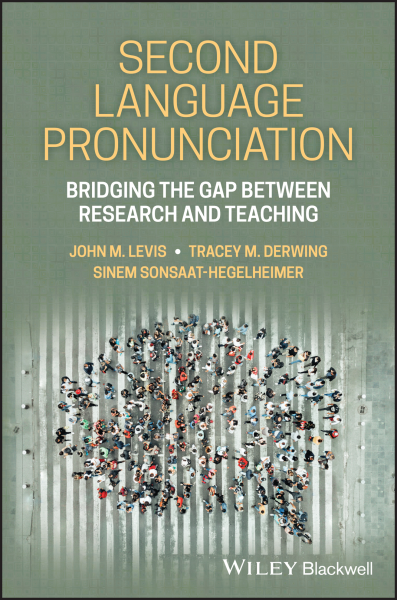 | Second Language Pronunciation: Bridging the Gap between Research and Teaching John M. Levis, Tracey M. Derwing, and Sinem Sonsaat-Hegelheimer Second Language Pronunciation: Bridging the Gap Between Research and Teaching offers language educators, researchers, and teacher education candidates the tools and knowledge to effectively understand and teach L2 pronunciation. This book includes 15 contributions from leading pronunciation scholars and teachers who connect the latest research with best practices for pronunciation teaching. |
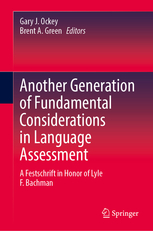 | Another generation of fundamental considerations in language assessment Gary J. Ockey (with Brent Green) This edited book is a collection of papers, written by language assessment professionals to reflect the guidance of Professor Lyle F. Bachman, one of the leading second language assessment experts in the field for decades. It has three sub-themes: assessment of evolving language ability constructs, validity and validation of language assessments, and understanding internal structures of language assessments. It provides theoretical guidelines for practical language assessment challenges. Chapters are written by language assessment researchers who graduated from the University of California, Los Angeles, where Professor Bachman trained them including the book editors. |
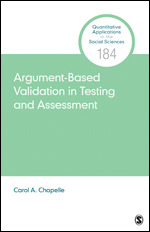 | Argument-Based Validation in Testing and Assessment Carol A. Chapelle This book shows readers how to design validation research for tests of human capacities and performance, including tests of language ability and performance. Any test that is used to make decisions about people or programs should have undergone extensive research to demonstrate that the scores are actually appropriate for their intended purpose. Argument-Based Validation in Testing and Assessment is intended to help close the gap between theory and practice, by introducing, explaining, and demonstrating how test developers can formulate the overall design for their validation research from an argument-based perspective. |
 | The Concise Encyclopedia of Applied Linguistics Carol A. Chapelle The Concise Encyclopedia of Applied Linguistics introduces fundamentals of the discipline with the concepts, research, and methods used by applied linguists working on a range of language-related problems in the field. The volume contains topics selected and updated from the most-accessed entries from The Encyclopedia of Applied Linguistics (www.encyclopediaofappliedlinguistics.com), the more extensive volume which is available in print and digital format in 1000 libraries spanning 50 countries worldwide. |
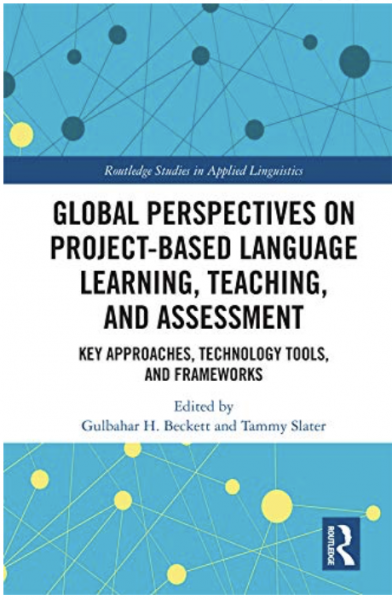 | Global Perspectives on Project-Based Language Learning, Teaching, and Assessment Key Approaches, Technology Tools, and Frameworks Gulbahar H. Beckett & Tammy Slater (2019) This volume provides a comprehensive account of project-based language learning (PBLL) which showcases key theoretical approaches, empirical research, technological tools, and research-based frameworks to help further PBLL implementation and research. Taking its cue from the conclusions drawn from project-based work on learning and development, discourse socialization, subject engagement, and collaborative skills, the book highlights how these discussions might be extended and enhanced within the context of language learning. |
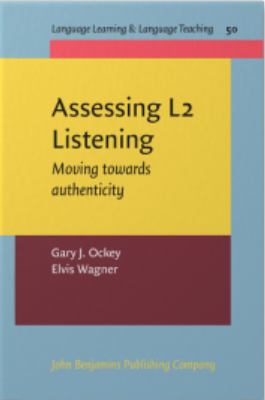 | Assessing L2 listening: Moving towards authenticity Gary J. Ockey (with Elvis Wagner, Temple University) Assessing L2 listening: Moving towards authenticity (2018, John Benjamins) explores four broad themes related to the assessment of L2 listening ability: the use of authentic, real-world spoken texts; the effects of different speech varieties of listening inputs; the use of audio-visual texts; and assessing listening as part of an interactive speaking/listening construct. Each theme is introduced with a review of the relevant literature, and then is examined through either two or three empirical studies. |
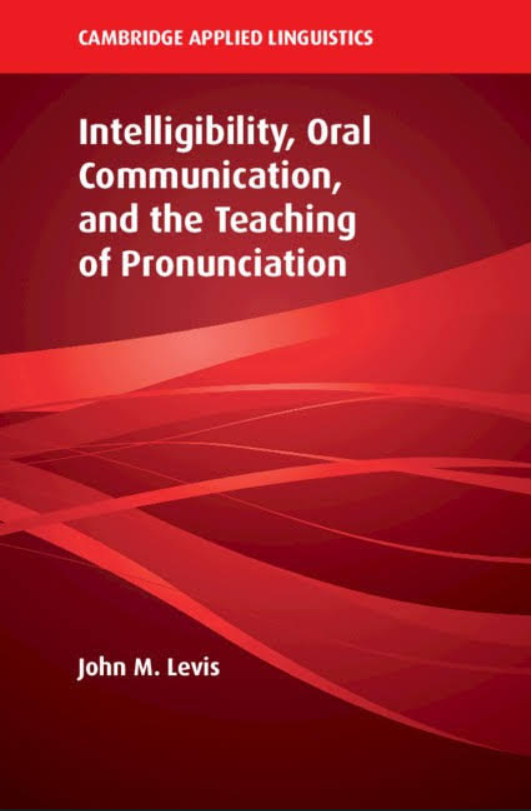 | Intelligibility, Oral Communication, and the Teaching of Pronunciation John Levis Intelligibility, Oral Communication, and the Teaching of Pronunciation (2018, Cambridge University Press): Pronunciation dramatically affects the ability of language learners to make themselves understood and to understand the speech of others. But not all elements of pronunciation are equally important. Some affect intelligibility a great deal, while others do not. With a strong emphasis on classroom practice and how pronunciation teaching can be more effectively approached in different teaching contexts, this book provides an important resource for pronunciation researchers, with a distinctly practical focus. It shows how intelligibility research informs pronunciation teaching within communicative classrooms, enabling language teachers to incorporate intelligibility findings into their teaching. Professionals interested in oral communication, pronunciation, and speech perception will find the book fascinating. |
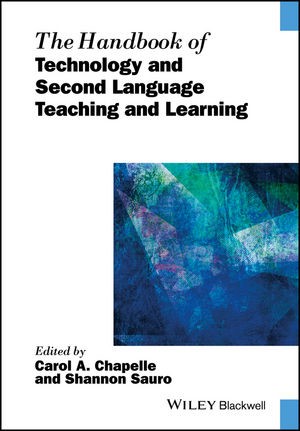 | The Handbook of Technology and Second Language Teaching and Learning Carol A. Chapelle (with Shannon Sauro), Eds. The Handbook of Technology and Second Language Teaching and Learning (2017, Wiley) demonstrates the extensive, multifaceted implications of technology for language teachers, learners, materials-developers, and researchers. The thirty chapters cover four themes: language teaching and learning through technology; the technology-pedagogy interface; technology for L2 assessment; and research and development of technology for language learning. |
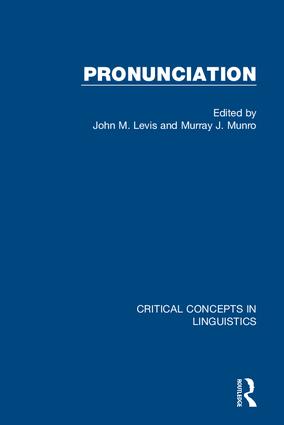 | Critical Concepts in Linguistics: Pronunciation John Levis (with Murray Munro), Eds. Critical Concepts in Linguistics: Pronunciation (2017, Routledge) is a collection of 85 articles that are historically important in understanding research, description, and application of research on pronunciation. The chapters are divided into four sections: (1) L1 pronunciation: Descriptions, variation and change, (2) L2 pronunciation, (3) Pronunciation teaching, and (4) Applications of pronunciation research. |
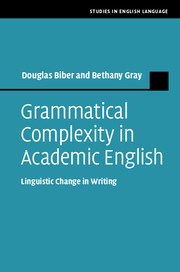 | Grammatical Complexity in Academic English Linguistic Change in Writing Bethany Gray (with Douglas Biber, Northern Arizona University) Grammatical Complexity in Academic English (2016, Cambridge University Press) tracks grammatical change in academic writing in English over the past 200 years using corpus-based analyses of phrasal and clausal complexity features. The book details the evolution of academic writing as it has adopted a dense, phrasal style built on noun phrases, tracking both quantitative and functional shifts in the grammatical characteristics of academic writing. |
 | Teaching Culture in Introductory Foreign Language Textbooks Carol Chapelle Through chronological analysis of sixty-five French textbooks, Teaching Culture in Introductory Foreign Language Textbooks (2016, Palgrave Macmillan) explores the representations of Canada and Quebec in beginning-level French textbooks used in the United States from 1960 to 2010. |
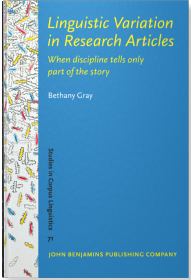 | Linguistic Variation in Research Articles When Discipline Tells Only Part of the Story Bethany Gray Linguistic Variation in Research Articles (2015, John Benjamins) is a corpus-based research monograph that analyzes situational and grammatical variation in research articles both within and across the disciplines of philosophy, history, political science, applied linguistics, biology, and physics. |
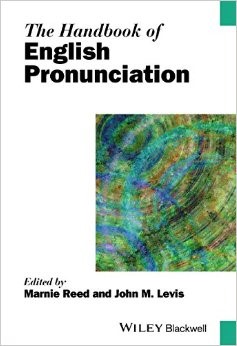 | The Handbook of English Pronunciation John Levis (with Marnie Reed), Eds. The Handbook of English Pronunciation (2015, Wiley) includes 28 chapters in six sections: The history of English pronunciation, describing English pronunciation, pronunciation and discourse, pronunciation of the major varieties of English, pronunciation and language acquisition, and pronunciation teaching. |
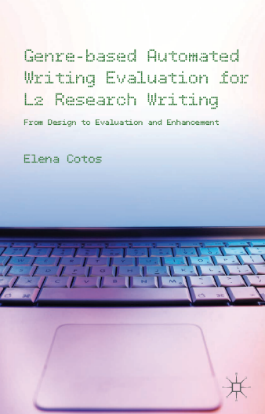 | Genre-based Automated Writing Evaluation for L2 Research Writing From Design to Evaluation and Enhancement Elena Cotos Drawing on a fertile landscape of theoretical and operational frameworks, Genre-based Automated Writing Evaluation (2014, Palgrave Macmillan) presents a compelling model for developing and implementing genre-based automated feedback technology in scientific writing. |
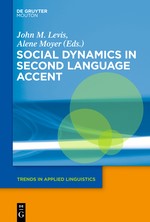 | Social Dynamics in Second Language Accent John Levis (with Alene Moyer), Eds. Social Dynamics in Second Language Accent (2014, DeGruyter Mouton) is an edited volume of 13 chapters looking at the effects of social factors on the development of pronunciation skills. |
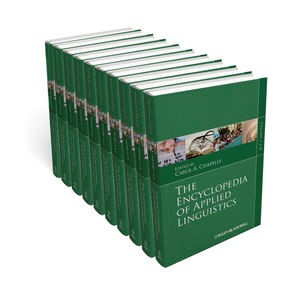 | The Encyclopedia of Applied Linguistics Carol A. Chapelle (Ed). With over 1,100 entries written by an international team of scholars from over 40 countries, The Encyclopedia of Applied Linguistics (2013, Wiley) invites readers of all backgrounds to discover the diverse field of applied linguistics. The ten-volume Encyclopedia, available online and in print, serves as a gateway for readers wanting to learn more about the field as a whole or to gain perspective on a particular area of applied linguistics. |
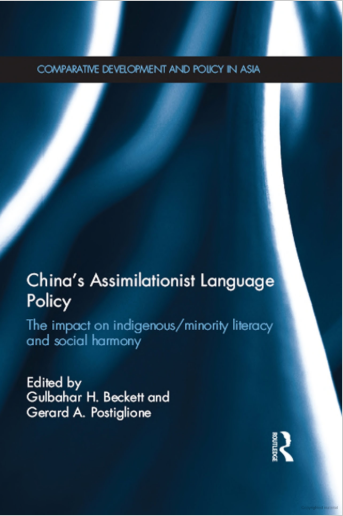 | China’s Assimilationist Language Policy The impact of indigenous/minority language policy and social harmony Gulbuhar H. Beckett and Paul Chamness Miller, Eds. China’s Assimilationist Language Policy (2012, Routledge) is an edited volume with chapters that assess the current state of indigenous and minority language policy in China. The book considers especially language policy in the education system, including in higher education, and provides detailed case studies of how particular ethnic minorities are being affected by the integrationist, or assimilationist, approach. |
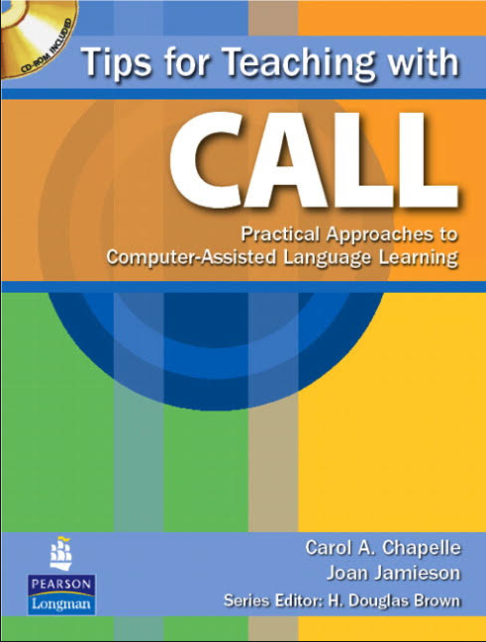 | Tips for Teaching with CALL Practical Approaches to Computer Assisted Language Learning Carol A. Chapelle (with Joan Jamieson, Northern Arizona University) Tips for Teaching With CALL: Practical Approaches to Computer Assisted Language Learning (2008, Pearson Education) introduces English language teachers to computer-assisted language learning (CALL), linking research with specific techniques for using CALL (illustrated on an accompanying CD). |
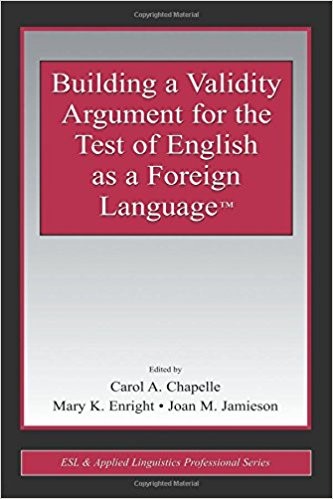 | Building a Validity Argument for the Test of English as a Foreign Language Carol A. Chapelle (with Mary K. Enright, Educational Testing Services, and Joan Jamieson, Northern Arizona University), Eds. Building a Validity Argument for the Test of English as a Foreign Language (2008, Routledge) provides a detailed description and analysis of Educational Testing Service’s research and development efforts to develop a major revision of the TOEFL. The book serves as a case study of test design and validation drawing upon theory in the complex domain of English language proficiency and addressing standards of educational measurement. |
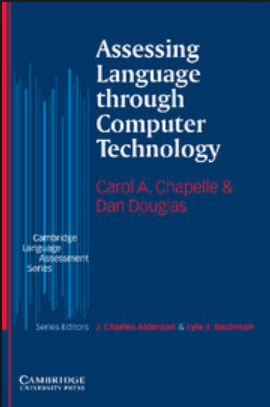 | Assessing Language through Computer Technology Carol A. Chapelle (with Dan Douglas, Iowa State University) Assessing Language through Computer Technology (2006, Cambridge University Press) addresses theoretical, methodological and practical issues as well as their implications for language-teaching professionals wishing to engage with computer-assisted assessment. |
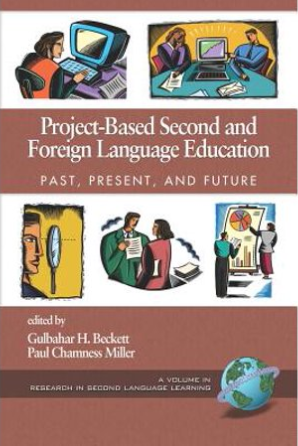 | Project-Based Second and Foreign Language Education Past, Present, and Future Gulbuhar H. Beckett and Paul Chamness Miller, Eds. Project-Based Second and Foreign Language Education: Past, Present, and Future (2006, Research in Second Language Learning) brings together a collection of writings that unpack the theoretical underpinnings of Project Based Learning (PBL), explore the challenges of its implementation, investigate its employment in a range of L2 classroom contexts, and argue for a more substantial, not merely supplementary, role for PBL in foreign language and L2 curricula. |
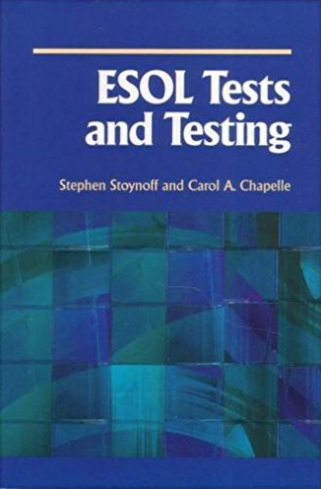 | ESOL Tests and Testing A Resource for Teachers and Program Administrators Carol A. Chapelle (with Stephen Stoynoff, Minnesota State University) ESOL Tests and Testing: A Resource for Teachers and Program Administrators (2005, TESOL Publications) describes how ESOL tests and test users have changed over past decades, resulting in revision of some of widely used ESOL tests, development of new tests incorporating advances in computer technology, and increased test-related responsibilities of ESOL practitioners. |
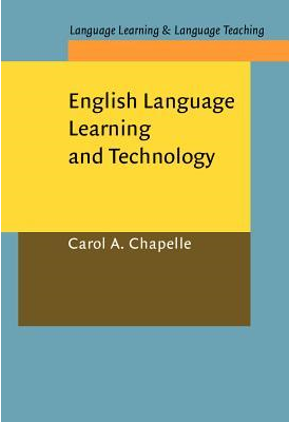 | English Language Learning and Technology Lectures on Applied Linguistics in the Age of Information and Communication Technology Carol A. Chapelle English Language Learning and Technology: Lectures on Applied Linguistics in the Age of Information and Communication Technology (2003, John Benjamins) explores implications for applied linguistics of developments in technologies used in second language teaching, learning, and assessment. Available open access at http://www.jbe-platform.com/content/books/9789027295958 |
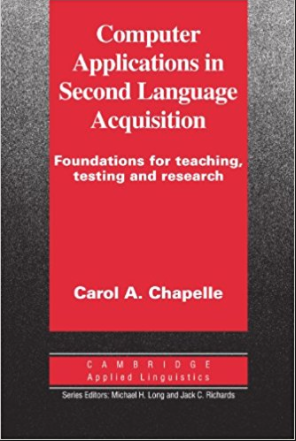 | Computer Applications in Second Language Acquisition Foundations for Teaching, Testing, and Research Carol A. Chapelle Computer Applications in Second Language Acquisition: Foundations for Teaching, Testing, and Research (2001, Cambridge University Press) explores computer applications in second language acquisition by reviewing and interpreting research and development in three areas: computer-assisted second language learning, computer-assisted second language assessment, and computer-assisted second language research. It addresses issues such as effective use of software in language teaching, values and limitations of computer-assisted testing, and the study of second language development with interactive computer programs. |
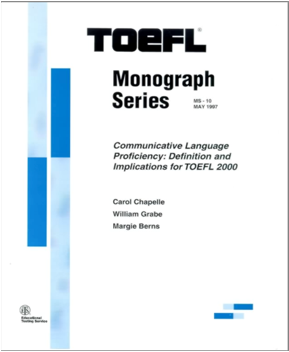 | Communicative Language Proficiency Definition and Implications for TOEFL 2000 Carol Chapelle (with William Grabe, Northern Arizona University, and Margie Berns, Purdue University) Communicative Language Proficiency: Definition and Implications for TOEFL 2000 (1997, Educational Testing Service) defines communicative language proficiency using the TOEFL Committee of Examiners (COE) Model, and discusses implications of the model for test development and for validation of TOEFL 2000. |